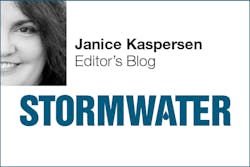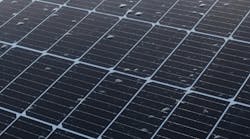
On September 8, The Ocean Cleanup launched its first plastic-cleanup system from San Francisco, headed for the Great Pacific Garbage Patch. (You can follow its progress here and find some background on the project here.) The technology looks promising, and we wish The Ocean Cleanup every success—but there’s more to be done, and now some of the world’s biggest companies are taking at least some first steps in the right direction.
Cleaning up the plastic that’s already in the ocean is a worthy goal, but stopping it from getting there in the first place would be even more useful. An organization called the Ellen MacArthur Foundation is spearheading a campaign to get companies to pledge 100% of their plastic packaging will be accounted for—either reused, recycled, or composted—within seven years. As the foundation points out, more plastic is used for packaging than for anything else.
So far, 250 companies and organizations have signed up to the UK Plastics Pact, including Coca-Cola, Unilever, Burberry, H&M, Mars, PepsiCo, and L’Oreal. A second pact is being launched in Chile, and the idea is eventually to bring together people and organizations in many different locations—local businesses, local policymakers, and other groups—to find alternatives to single-use plastics.
The foundation’s larger goal is to promote a circular economy, as opposed to a linear one, where waste and pollution are “designed out” of the system and where products and materials are reused rather than discarded. (You can see a diagram of the concept on the foundation’s site here.) The foundation has another effort called Make Fashion Circular that encourages creating clothing from safe and renewable materials and getting companies to adopt business models that reuse textiles and other materials.
What does the Plastics Pact mean in practical terms? One company that has signed on, the conglomerate Unilever, which owns some of best-known food and personal care brands, including Lipton, Hellman’s, Dove, Lifebuoy, and even Ben & Jerry’s ice cream, is making changes like replacing plastic tea bag seals (the tiny bit on a paper tea bag that stops it from disintegrating in hot water) with cornstarch and using recycled plastic in Hellman’s mayonnaise bottles. The seal on a tea bag might seem like a small thing, but considering that the company had been producing 10 billion plastic-containing tea bags a year, it adds up.
The foundation believes that consumers will eventually look for assurances that companies are responsible for the reuse or recycling of their packaging. Do you think that will become a significant factor for most people when choosing products? What do you think of the effectiveness of a campaign like this compared to, say, the ban on single-use plastic bags or drinking straws that many cities are enacting?
Reminder: Western Water Summit Deadline is Thursday, November 1
The Western Water Summit will take place January 22–23, 2019, in San Diego, CA. It focuses on all facets of water management: groundwater, surface water, wastewater, drinking water, irrigation, water law, reuse, generation, restoration, conservation and efficiency, and erosion and sedimentation. TÍhe Call for Speakers is open until November 1. Find more information about the conference tracks and registration at www.westernwatersummit.com.
About the Author
Janice Kaspersen
Janice Kaspersen is the former editor of Erosion Control and Stormwater magazines.

